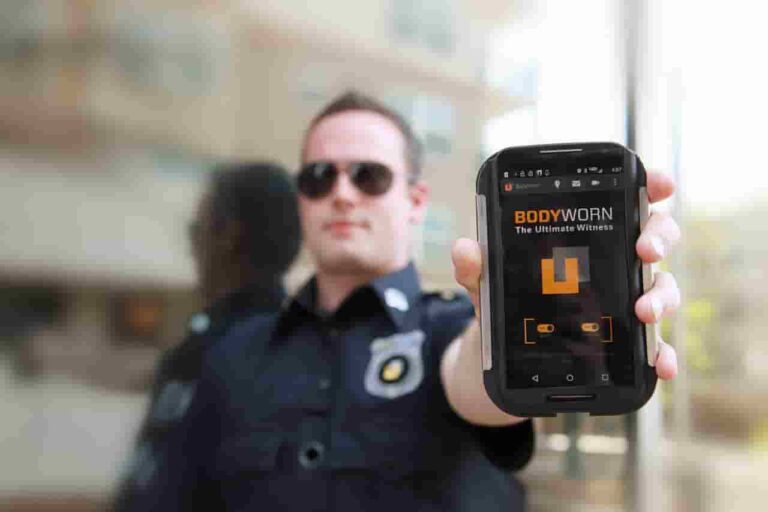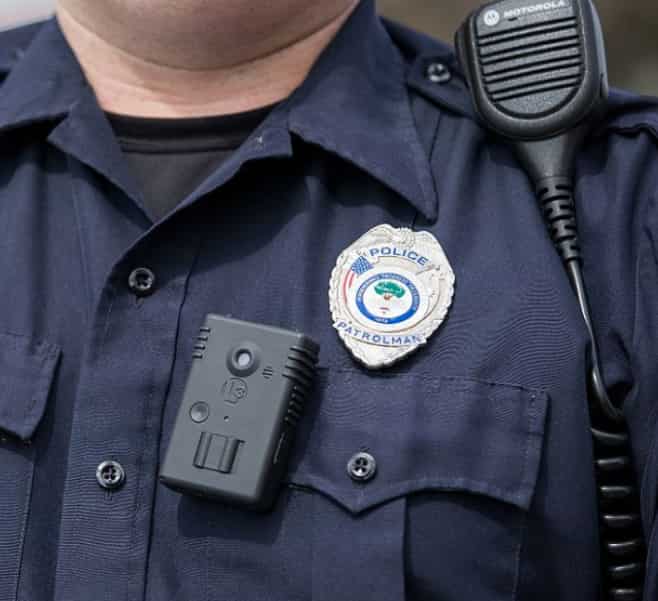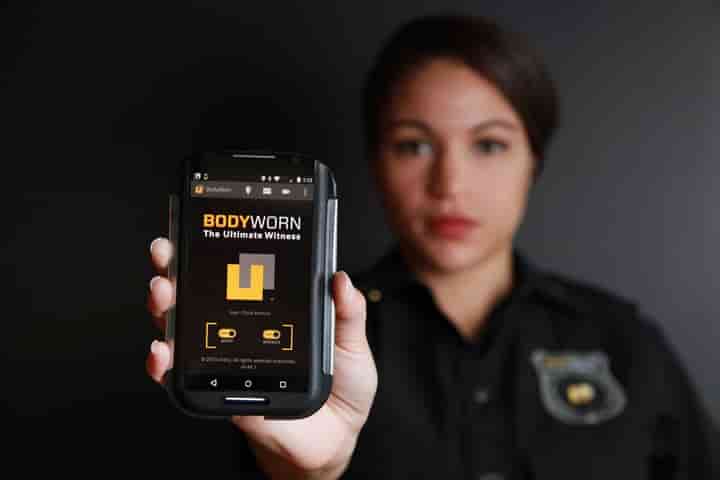
Should it be mandatory for all Police Officers to wear body cameras? Simply Yes! Police should wear body cams. It’s not a secret that through the decades there have been incidences of misconduct in the police community. Therefore, cameras would end this confusion for once and for all.
Question: Why police should wear body cameras?
The police should wear body cameras to provide evidence to the court and be accountable if in case they are charged with corruption and misconduct or citizens’ misbehavior happens.
We are not here to make excuses for anyone or to bash anyone. We are just clearing our point. We have seen both sides of the fence. The fact is that we have seen good cops, we have seen really amazing cops and we have also seen really corrupt cops.
What really frustrates us is that a few bad apples tarnish it for everybody. The which frustrates us is that we have seen with our own eyes that the majority of the officers have good intentions, they are good people and they do their job how they are supposed to.
Most of them got in this line of job to help people. I am not speaking of someone else, but I am never bullied by cops for no reason. The use of body cams can boost data and record collection and strengthen community-law enforcement relationships.
Table of Contents
Why Police Should Wear Body Cameras

The body cameras are better for both police and public. It is a source of evidence against either of them. Let me explain:
Body cameras are doing their best to expose bad cops. If a cop is bullying someone or is corrupt, then he is being recorded. All one need is to make a complaint against the cop. Everything will be cleared after the video is watched by high authorities.
In case of bad public response, body cams can be defense evidence for the cops and against the people who are showing bad attitude towards them. There are people with high official posts and power and thus think of themselves as they are above the law and disrespects police officers. In this case bodycams can be a weapon for the police officers.
It is a fact that having a camera works in favor of both police and citizens. A study shows that according to a survey by Rialto, California Police -Department there has been a decrease of 90% in citizens’ complaints against officers that wore a body camera.
Despite its beneficial use, the acceptance of bodycams is fluctuating over the years. There is also political pressure against the use of bodycams as all the power of these powerful people will be recorded in these cameras as well as there are misconceptions about the emerging technologies and people fear of unknown results
Even those people of groups that initially stood in favor of body cams and their use are now reversing their track or trying to impose limitation of its use as it’s not going in their favor.
Though according stats it’s favorable to use bodycams, but such resistance has kept the nation in a state of confusion. And, in the current situation, if we’re planning to find what’s gonna happen in future, then we must take a look at the past. So, let’s look at the stats how we reached to this point and what are chances for future policies.

Benefits of using Body Cameras
- Better transparency while performing duties
- Training opportunities
- Increased good relations between cops and citizens
- Quick actions in time of need
- Provide real evidence to the court
Trend of Body Cameras
The law enforcement agencies themselves were the first ever to oppose the use of cameras by the officers. About 10 to 15 years ago, the Police-Unions and secret bargaining organizations stood against the use of body cameras.
They had fears and concerns over this new policy which was going to end their misleading power and corruption. Typically, when new technologies and policies are introduced like this, the people with authorities stand hard against them as it’s against their personal interests.
Origin of Need for Body Cameras
Prior to 2013 the US Department of Justice announced that less than 25% of 500 law agencies surveyed had implemented the use body cameras.
Nonetheless, several highly publicized incidents in 2014 exposed deep-set social, racial, economic, and political issues, which were swinging the social and cultural pendulum, one party agrees, and other disagree and vice versa.
These issues were too exaggerated by the media which created a huge push for wearing of body cameras in the general public. Among those arguing that police should wear body cameras had been public defenders, politicians, community groups and civil right communities.
The law-enforcement agencies and high authorities were forced to reconsider the use of bodycams due to the increasing pressure by the general public and media.
Successive public protests, court orders forced the state legislation to bring a solution to this issue and then the choice was made by the authorities: Yes! Police should wear body cams.
With time, public interest died down as the order of body cameras was implemented nationwide. Now most of the high authorities are embracing the body camera order and are not questioning latest technology anymore.
How and Exactly Why did this Shift occur?
These Body cameras were record everything that a cop encounter. These cams can record stopping of a car, street encounters, dealing with mentally disturbed people, arresting, shooting and high-profile and powerful political peoples’ behavior with cops.
In these scenarios, the body cameras are a living proof that the officers are performing their duties sincerely according to the law of justice and also these cameras play an important role in the defense of an officer or a cop in case some accuse him with a false accusation.
And also on the other hand, body cameras have spotted a few bad apples tarnishing the Law enforcement agencies. It is a good thing, not a bad though.
The increased surveillance has led to increased privacy concerns, though law enforcement authorities has certainly admitted the huge benefits of using such helpful technology.
The use of body cams by police is turning out to be a hot topic for public defenders, community groups politicians, and civil rights groups who initially did discussions for body-cam adoption.
It is true that these policies of cameras have increased public transparency, public and police accountability and is playing a vital role in decreasing differences between cops/police and public community.
Also, it is also important to keep in mind the privacy of citizens in general. I mean if a cop is recording a person, then he should know that he is being recorded and camera is equipped by the cop. He might be doing anything which may not be a crime but personal affairs.
Final Verdict
As a case study in Las Vegas showed that the complaints against officers has been reduced means bodycams are doing a great job. Also study from Washington DC shows that there is no apparent change in cases which shows that Capital City Police Department is doing it’s job appropriately.
Without a doubt, bodycams help improve public-police relationships. The bad cops can no more protect high-profile people and also record everything which is against the law and thus prevent needless protests of people and violence and protects the public from harm
But the benefits don’t have to end there. When used in conjunction with other technology, such as a fruitful case management system, bodycam tracks can work even harder as an investigative device
As currently more and more law enforcement agencies are implementing the use of body cams and more experiments are being done on their use, therefore in coming time a lot of information will be received. Stay Tuned.
Also Visit: How to Take Professional Pictures With Your Phone
References
- Associated Press | nbcnews.com on July 13,2007
- National Conference of State Legislatures | ncsl.org on 27, 2017
- US Department of Justice | bja.gov in 2017
- Edmonton Police Service | www.bwvsg.com in June 2015
- Michael D. White | nicic.gov in 2014
- ProCon | www.org on August 14, 2020
- Brett Chapman | ojp.gov on November 14, 2018
- Edward Wallace | com October 22, 2018

